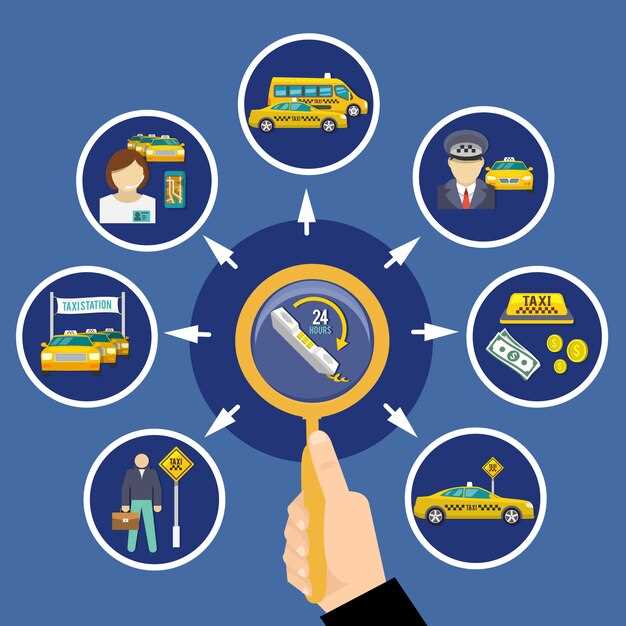
When it comes to operating a business that involves the use of vehicles, one critical question often arises: “Do I need commercial plates for my work vehicles?” Whether you’re a contractor, delivery service, or any other professional using a vehicle for business purposes, understanding the requirements for commercial vehicle registration is essential.
Commercial vehicle plates are specially designed to indicate that a vehicle is being used primarily for business activities. This distinction can affect insurance rates, liability coverage, and compliance with local regulations. Depending on your location and the type of work you perform, the laws surrounding commercial vehicle registration can vary significantly.
In this article, we will explore the factors that determine whether you need to register your work vehicles with commercial plates. From understanding local regulations to evaluating your business needs, this guide will provide you with the knowledge necessary to make informed decisions about your vehicle registration requirements.
Understanding the Requirements for Commercial Plates in Your State
When it comes to operating work vehicles, the need for commercial plates can vary significantly based on local regulations. Each state has its own set of laws governing vehicle registration, including requirements for commercial license plates. It is crucial to familiarize yourself with these requirements to ensure compliance and avoid potential fines.
Definition of Commercial Vehicles
Commercial vehicles are typically defined as those used for business purposes, which may include transporting goods, carrying passengers for hire, or working for a business. Common examples include delivery trucks, vans used for service work, and any vehicle where the primary use is related to commercial activity.
Registration Processes
To obtain commercial plates, businesses usually need to follow specific registration processes. This often requires submitting documentation that proves the vehicle is indeed used for commercial purposes, such as business ownership papers or proof of insurance. Some states may also require a vehicle inspection before issuing commercial plates.
Types of Commercial Plates
Different states offer various types of commercial plates that cater to specific vehicles and their uses. For instance, you may find plates designated for larger trucks, lightweight commercial vehicles, or specialized vehicles such as tow trucks. Understanding the types of plates available in your state can help you select the right one for your vehicle.
Fees and Taxes
Fees for obtaining commercial plates can vary widely from state to state and may depend on the weight of the vehicle or the intended use. Additionally, some states impose annual taxes on commercial vehicles that must be taken into account when budgeting for vehicle expenses. It is advisable to check your state’s Department of Motor Vehicles (DMV) website or contact them directly for the most accurate fee structure.
Renewal and Compliance
Once registered, commercial plates require annual renewal, which may involve additional paperwork and fees. It is essential to stay current with these requirements, as non-compliance can lead to penalties. Keeping records of your vehicle’s use and ensuring timely renewals can help maintain adherence to state laws.
Overall, understanding the requirements for commercial plates in your state is vital for any business that relies on vehicles for its operations. Ensure you conduct thorough research and remain compliant to avoid unnecessary complications.
Benefits of Using Commercial Plates for Business Vehicles

1. Legal Compliance: Utilizing commercial plates is often a legal requirement for vehicles that are primarily used for business purposes. This ensures that your company complies with local and state regulations, reducing the risk of fines or legal issues.
2. Insurance Advantages: Commercial vehicles typically require specialized insurance coverage. Having commercial plates can make it easier to obtain appropriate insurance policies, often leading to better rates and more comprehensive coverage tailored to business needs.
3. Tax Deductions: In many jurisdictions, businesses can claim tax deductions for expenses related to commercial vehicles. Using commercial plates can substantiate your vehicle’s business use, making it easier to track expenses and qualify for deductions.
4. Professional Image: Vehicles marked with commercial plates present a professional image to clients and customers. This branding can enhance your business’s credibility and trustworthiness, making a positive impression on potential clients.
5. Access to Restricted Areas: Some areas, such as construction sites or commercial zones, may have restrictions on vehicle access. Commercial plates can facilitate entry into these zones, allowing your business to operate more efficiently.
6. Reduced Personal Liability: Using commercial plates helps distinguish between personal and business-use vehicles. This separation can protect individual owners from personal liability in the event of accidents or legal claims involving the business vehicle.
7. Easier Registration Renewal: Maintaining commercial plates usually involves streamlined processes for registration renewal, often with dedicated resources for businesses, reducing downtime associated with administrative tasks.
How to Apply for Commercial Plates and What Documents are Needed

Applying for commercial plates involves a specific process that varies by state or country. Generally, the steps include registering your business and providing certain documentation. Here’s a guide to help you navigate the application process smoothly.
1. Determine Your Eligibility: Before applying, confirm that your vehicle qualifies as a commercial vehicle according to local regulations. This typically includes vehicles used for business purposes that can range from delivery vans to trucks over a certain weight limit.
2. Gather Required Documents: The documentation required to apply for commercial plates may vary, but typically includes:
- Proof of Business Ownership: This could be your business license, registration, or articles of incorporation.
- Identification: A valid driver’s license or identification card for the person applying.
- Vehicle Information: This includes the Vehicle Identification Number (VIN), make, model, year, and current mileage.
- Insurance Documentation: Proof of insurance that meets the state’s commercial vehicle requirements.
- Tax Identification Number: Your Employer Identification Number (EIN) or Social Security Number (if a sole proprietor).
3. Complete the Application: Obtain the application form for commercial plates from your local Department of Motor Vehicles (DMV) or equivalent authority. Fill out the form accurately and completely.
4. Submit Your Application: Submit your completed application along with the required documents either in person or online, depending on the options provided by your local DMV. Make sure to pay any applicable fees associated with the plate registration.
5. Wait for Approval: After submission, the processing time for your application can vary. Ensure you monitor the status if your local authority provides a tracking option.
6. Receive Your Plates: Once approved, you will be issued your commercial plates. Follow any instructions provided regarding mounting and compliance requirements.
Maintaining correct and updated commercial plates is crucial to avoid fines and legal issues. Ensure that all information remains current, especially in the case of vehicle changes or business structure modifications.
